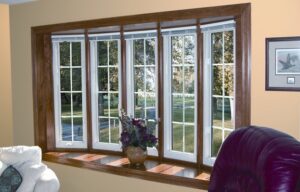
How to properly heat your home?
However, there are a few tips to follow (heating programming, heating mode, equipment, good habits, etc.) to better heat your home while limiting your energy consumption.
Assess the surface to be heated
Several factors impact your heating consumption: the location of your residence, the level of insulation , the orientation of the accommodation, the heating method (electric, gas heating, heating using renewable energy such as solar or wind), etc. To be effective, the heating system must be well suited to the surface area of your home, your rooms and your use.
If you are moving in or carrying out work, the professional you hire will suggest a heating method and equipment adapted to your situation. As for the number of radiators ( electric or domestic hot water radiators ), again, he will determine the installation adapted to your needs. The rule: one radiator per room, except for the living room where two radiators make it possible to even out the temperature within the room. Normally, there is no need for an auxiliary heater to obtain the desired comfort. And for a cocooning effect in the bathroom, nothing beats a hot towel placed on a heated towel rail. The effect is twofold: you heat your room and dry your towel!
In a bedroom, do not install the radiator right next to your bed, because if you are too hot, your sleep will be of less good quality.
Choose the right equipment
When purchasing, you can rely on the energy label, which has been mandatory since September 2015 for heating and domestic hot water production equipment . The energy class (ranging from A+++ to G) is determined according to the seasonal energy performance of the system.
Some equipment may possibly use renewable energies: solar panel , heat pump , etc. There are also quality signs such as “NF PAC” for heat pumps or “Flamme verte” for wood-fired heaters .
Another possibility: combine different types of energy to optimize your heating mode
It is possible to couple a traditional system such as a gas boiler with a heat pump which transfers thermal energy from a low temperature environment to a high temperature environment. It is interesting to heat your interior. The investment cost of such a heating installation is quickly amortized and you limit the ecological footprint of your home.
Remember to have your radiators purged and dusted in early fall
Your radiators work every winter but did you know that they have to be serviced before the start of each season?
Have your hot water radiators purged as there may be air in the circuit. The professional must also remove sludge from your heating circuit. It should be noted that with wear, the piping clogs with the mineral salts contained in the water in the circuit, which prevents the correct diffusion of heat.
If they are electric heaters, dust them (cloth, vacuum cleaner, etc.). This will increase the heating power and avoid unnecessary energy consumption. It is important to switch off the appliance before cleaning.
Schedule your heating
Set the heating temperature to the minimum if no one is there or if you ventilate your home
In some cases, it is better to reduce the power of the heater at the timer level rather than turning it off completely. For consumption adapted to your lifestyle, you can program your radiators (electric, natural gas or city) according to the time of day, the day of the week, or when you are away on vacation, for example. This allows you to consume only the energy necessary for your use.
Some radiators can be fitted with individual thermostats that allow each room to be heated differently. They take into account free heat sources such as exposure to the sun , heat input by cooking or lighting, for example, and adapt the heating power accordingly.
Avoid overheating
The ideal temperature varies depending on the rooms in your home. For your living rooms (living room, kitchen, dining room, office), we advise you to heat to 19°C. On the other hand, 17°C is sufficient for the bedrooms because it is not recommended to sleep in an overheated environment. As for the bathroom, for reasons of comfort, you can increase the temperature to 22°C when you are there. And if you do not occupy the accommodation, lower it to 12°C.
Lowering the temperature of your home by one degree will save you up to 7% in energy savings. On the contrary, using your electric heating to its maximum will considerably increase your energy consumption.
If all this advice is not enough and your energy bill remains high, call on a professional to carry out an energy diagnosis of your home and start renovation work if necessary, possibly considering a low-energy heating installation. Be aware that recent insulation will save you significant energy and your heating consumption will be reduced.


